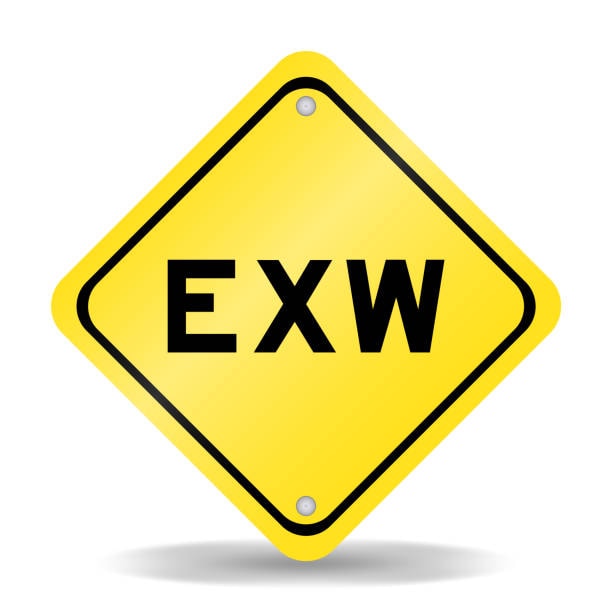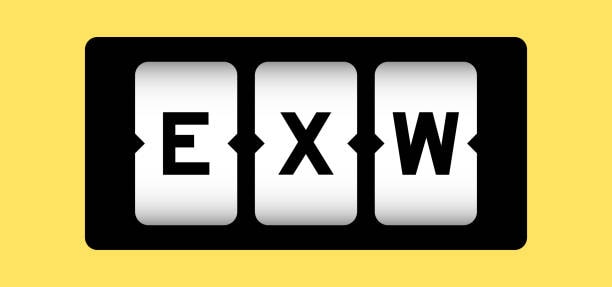
Get to know all about the Ex Works (EXW) pricing in international trade, as outlined in the ex works agreement . Find out how and why Ex-Works (EXW) Incoterms are used, their advantages, and challenges, and how exporters and importers can satisfy their logistics needs.
Ex Works (EXW) is currently one of the most permiment pricing terms and it is used as a benchmark to FCA Incoterms. So it is vital that companies that deal with international trade learn how to price as EXW since it determines the basis of costs, the risks, and the responsibilities that reside with buyers and sellers. This guide covers all the features of Ex Works pricing and highlights the buyer’s responsibility s you consider these as your guide when engaging in international trade.
Who is GWT Worldwide: GWT Worldwide (Shenzhen Guanwutong International Freight Forwarding Co., Ltd.) is a professional logistics service company dedicated to global freight forwarding, various supply chain management and cross-border e-commerce logistics. We have expertise in Luftfracht & Sea Freight, China Europe Railway Transport, International Express & Courier Solutions, Customs Clearance & Warehousing, and Amazon FBA Shipping & Labeling Support and we guarantee safe passage of goods, swift, and in-compliant movement of goods between the point of origin to the end.
What is Ex Works (EXW) Price?

Ex Works price is the most binding that a seller can have on international trade. The point at which the responsibility of the seller ceases, becomes a seller when goods are sold on an EXW basis, which is when the seller has made the goods available at his or her premises, usually factory, warehouse or specific place. It is the buyer who takes all the costs and the risks of transporting the goods at the point of the seller to the destination, meaning the buyer assumes full responsibility for these aspects .
Under the definition of EXW, there is no responsibility of the seller to bulk load the goods to the collecting vehicle as well as the seller is not bound to clear the goods to go out to the country. This renders EXW the most seller-friendly Incoterm since it imposes very few requirements on the seller and maximum responsibilities on the buyer. Basically, the Ex Works price is the factory gate price (it does not include any transportation, insurance, and export charges).
Such pricing structure is specifically prevalent in manufacturing times when buyers possess established logistics operations or would simply want to be in control of the whole supply chain operation. Other Incoterm prices are generally estimated based on the prices of using the EXW as a foundation in adding the cost of transportation, insurance and handling the goods to calculate delivered prices using various other Incoterms.
Key Components of Ex Works Pricing

The Ex Works price includes a lot of essential elements that buyers have to know in order to start the EXW deals. The main element is the actual cost of the product itself which also comprises the cost of manufacturing products, cost of raw materials, labor cost, shipping costs, and the profit margin of the seller. This is the very essence of the commodities without extra services or logistics requirements.
Other important elements in the structure of EXW pricing are costs of administration. These consist of preparing documentation, invoicing and simple packaging which is necessary in order to put the goods in the market in an available manner that they could be collected. Although minimal, such costs are performed as part of the Ex Works price and manifest in the endeavor of the seller to get goods ready to hand-over.
Costs associated with quality control and inspection are normally factored in the Exw price, since while selling off the products being offered, sellers ought to have them made to a certain requirement before they can even sell it off to the buyer. This involves the end quality checks, testing processes and the certification process which is done at the premise of the seller.
Storage fee until it reaches the availability point is also put into the price with Ex Works. In cases where the goods have to be stored temporarily at the warehouse of the seller before they can be collected, then such costs are usually swallowed in the price structure of the EXW.
Seller Responsibilities Under EXW Terms
Ex Works is a term under which the role of a seller is purposely minimized and has a straightforward structure transaction. The main thing asked is the availability of goods in the place it was agreed to be at the time agreed, which is most likely the place where the seller is located. These include ensuring that goods are well identified, packaged according to standard requirements, and they are ready to be collected for the shipping process.
Documentations to the extent of EXW are minimal yet vital. Sellers are obliged to furnish commercial invoices, packing notes, and any invoices or documents that are specified specifically by sales contract. Yet they do not bear the responsibility of export licenses, customs declarations and other documents of export requirements unless agreed specifically.

When the EXW terms are used, quality is the task of the seller. There should be goods that should meet the contract specifications and the sellers should give reasonable access to inspection of the goods by buyer when requested. This comes in form of ensuring quality standards during the manufacturing process and being able to deliver goods as per agreed specifications.
Sellers have to notify buyers in case goods are ready to be collected, and it should be given enough time to enable the buyers to organize transportation and collection processes. This communication is essential to ensure well-coordinated operations in logistics and prevents the mitigation of storage or any such costs.
Buyer Responsibilities and Obligations
When buyers agree to EXW terms, they take major responsibilities that are way beyond mere buying a product. This is followed by the nearest requirement which is to organize and pay the entire transportation to the destination location. This will involve choosing carriers, freight negotiations, and managing the logistics chain all the way to the final destination.
The buyer bears all the responsibilities of export clearance on behalf of the buyer with regard to EXW. This involves getting the export licenses, filing custom declaration, paying the export duty and taxes and all the regulations that should be adhered to in the country of the seller as far as exports are concerned. The foreign purchasers would in most cases need to put in place local agents or freight forwarders to take care of these processes.
The insurance goes to the buyer once the goods are out of the shop of the seller. Buyers are supposed to make relevant cargo insurance so as to cover against loss, damage or theft on the way. This involves knowing the insurance needs of the various means of transport and making sure there is a satisfactory amount of insurances.
When you use EXW terms, risk management becomes one of the major obligations of the buyer. All the risks move to the buyer as soon as the goods are put on the market at the selling point. This consists of loading risks, transportation risks, storage risks, and handling risks along the chain of supply, often managed by the buyer’s designated method.
Advantages of Ex Works Pricing
Ex Works pricing benefits both buyers and sellers as there are myriads of benefits associated with this method of pricing; it thus makes it a favorable method of pricing in most international trade situations. Such a situation is beneficial to sellers who benefit the most through EXW as the minimum cost of control and the least logistics obligations. This enables the manufacturers to stick to what they do best and yet they can give competitive prices to the buyers.
Transparency of costs is one of the important strengths of the EXW pricing. Customers can easily understand the price at the factory gate and take smart decisions on transport cost, insurance, and other logistics expenses, including the choice of a reliable shipping company . Such transparency can improve the costs control and allows the purchasers to maximize their supply chains costs.
The flexibility of logistics operations is an advantage of benefiting buyers that either possess their own transportation networks or specific carriers and routes to use. The EXW terms enable the buyers to use their logistics experience, have an advantage in freight rates as well as control the delivery timing and handling operations under the exw incoterm .
When terms of business are set to EXW then risk allocation may be favourable to buyers when they are better placed in terms of insurance cover or ability to manage risks. The Egyptians, being rather learned importers, usually choose the EXW terms since they are able to manage the risks more efficiently and take some security measures within their approach to the occasion of transportation.
Disadvantages and Risks of EXW Terms
In spite of the merits, Ex Works pricing has great demerits and dangers that should be put into great contemplation by parties. The biggest drawback to buyers is that they have to take on the entire logistics to themselves which may be complicated especially to an inexperienced importer or one without a well established logistics network.
Export clearance headaches pose an acute risk in the case of EXW. Shoppers might experience challenges in securing an export license or going through customs in the country of the seller, this may result into stalling of goods, increased expenditure, and pilferage of goods. This can be quite difficult especially when local knowledge or representation is not available to the buyers.
Like with the EXW terms, hidden costs can come in fast. Although the Ex Works price is competitive the buyer has to estimate the transportation costs, insurance, handling costs, storage costs, custom clearance and documenting costs. Such extra costs, including terminal charges, may grossly add up to the total landed cost of goods.
Quality control issues come in when buyers have no chance to inspect goods when they become in charge of the EXW. After the goods are offered at the selling location, the seller gives the risk associated with quality, which may not be discovered quickly, and hence a lot of conflict or loss of money could arise.
EXW vs Other Incoterms Comparison
It is crucial to understand the comparison of the Ex Works with the rest of the Incoterms in order to make an informed decision at the international trading process. The difference between the export conditions of EXW and FOB (Free on Board) is that all export duties in EXW are on the buyer, whereas FOB implies that the seller is to complete the export clearance and deliver his goods to the point of sailing.
CIF (Cost, Insurance, and Freight) stands as the extreme opposite of EXW where all the transport of goods to the port of destination, insurance, and even exports are the responsibility of the sellers. This increases CIF to a great extent compared to EXW and limits the buyer expenses and risks.
Terms DAP (Delivered at Place) and DDP (Delivered Duty Paid) put greatest responsibility on the sellers, who are required to bear transportation cost to destination, and under DDP, to clear customs and pay duties as well. Such thematics lead to an increase in prices and reduce the buyer responsibilities.
Conditions FCA ( Free Carrier ) provide an intermediate position between EXW and more extensive Incoterms. Sellers clear exports under FCA and hand over merchandises to named carrier which offers more value in service than EXW but offers somewhat sensible prices.
Best Practices for EXW Transactions
To have a successful EXW transaction, a lot of planning and best practice that shelters the interests of both sides should be followed. Effective communication is the key pillar of effective EXW arrangements. The parties should clearly indicate the specific address where the goods are to be availed including the contacts and the access procedures.
The type of documents required and how they should be formatted, the content required of the documents and the time to provide the said documents must be well stipulated in the sales agreement. Buyers must also be sure that they have all the documentation required to clear their exports and, in case they need to be represented in the country where the seller is located, they need to make such arrangements.
Under EXW terms, insurance arrangements need to be well considered. In the case of buyers, they ought to organize as wide a coverage as possible which starts once goods are released at the place of the seller, all the way through the transportation to the devolution point. This involves learning of policy words, limits of coverage and making claims.
Before delivering goods on the basis of EXW contract, quality control practices ought to be put in place. This can involve the pre-shipment inspection, the quality certificate arrangements or other verifications that will ensure that goods are delivered within specifications of the contract before risk transfer is made.
Legal and Regulatory Considerations
Transactions which are dealt with on an EXW basis have sophisticated aspects of laws and regulations depending on a nation and business. The control of exports imposed on the country of the seller might prevent some exports or limit some of them and therefore the buyer must secure the necessary licenses or approvals before certain goods can be shipped.
Tax consequences of exw trade can be high on either side. The tax treatment applied to sellers may vary depending on delivery terms and the buyer needs to be aware of the tax that he/she is required to pay in his country and the origin or destination country.
The customs laws in the country of origin and destination influence EXW transactions. The buyers would have to take particular care regarding the export conditions to be met in the country where they are selling, and the import conditions to be met in the country where they are receiving their goods.
The law on contracts depends on the jurisdiction and may have severe effects on EXW deals. The contracts between the parties must also explicitly indicate the governing law and procedures to be used in resolving disputes with regards to the repercussions caused by the various laws and other mechanisms of enforcing agreements.
Technology and Digital Solutions
The EXW transactions have been changed due to the modern technology where there is digitalized solution which simplified the processes and minimized risks. The use of an electronic documentation system allows increasing the speed of processing documents and decreasing the time of export clearance process and its errors.
The supply chain visibility platforms enable buyers to monitor goods as they distribute them to the premise of the seller down to the relevant part of transportation processes with real-time delivery updates on the goods delivery status, location and the expected delivery schedule. This visibility aids consumers in control over the stock levels as well as preparation to receive goods.
In most countries, satisfying the export customs procedures has been made easy with digital customs clearance systems, which ensured quick processing and less paper requirement. The systems can be combined with carrier and logistics provider systems to produce a smooth flow of information in the supply chain.
Risk management platforms give advanced capability to examine and control risks related to the transaction of EXW. Country risks, carrier performance, route security among other things that influence the success of goods delivery can also be analyzed using such platforms.
Future Trends in Ex Works Pricing
There are a number of new trends shaping the future of the Ex Works pricing method and which will affect the ways that the businesses conduct the EXW deals. Digitization is still continuing to smoothen the process, and blockchain technology will most likely improve transparency and security of international trade documents.
There is an increased interest in sustainability consideration in the determination of EXW prices. The buyer is beginning to consider the environmental implications of the transportation systems in their decision-making process, which means that they might bend towards more environmental friendly transport systems even though they may cost more than the conventional modes both the buyer.
Government and international organizations are implementing trade facilitation programs to streamline export processes and export customs clearance, and such programs are making the exporting process more open to the smaller companies and de-complicating international trade.
They are introducing artificial intelligence and machine learning in their systems so that they can have the predictive analysis in the transportation costs, delivery time, and risk seller’s factory. These technologies assist the buyers to be more knowledgeable in considering their offers using EXW offers export procedures.
Schlussfolgerung
Ex Works pricing is a basic principle in international trade but one that presents roles as well as threats to companies that venture in international business Although the terms EXW are more transparent in terms of cost and flexible regarding shipping , it also shifts too much responsibility and risks to buyers seller’s premises. To succeed in EXW transaction, obligations must be well understood, the transaction must be carefully planned, and the risk management strategies should be strong. With the ongoing international trade development led by technological revolution and fluctuating regulatory conditions of jurisdictions, companies need to remain updated on the best practices and the current trends to make full advantage of the Ex Works pricing agreements.


Thank you for reading!
Have questions, corrections, or better ideas? We’d love to hear from you!
We value every piece of feedback and promise to reply within 24 hours. Let's make this guide better together!
Note: Spam comments will not be published.